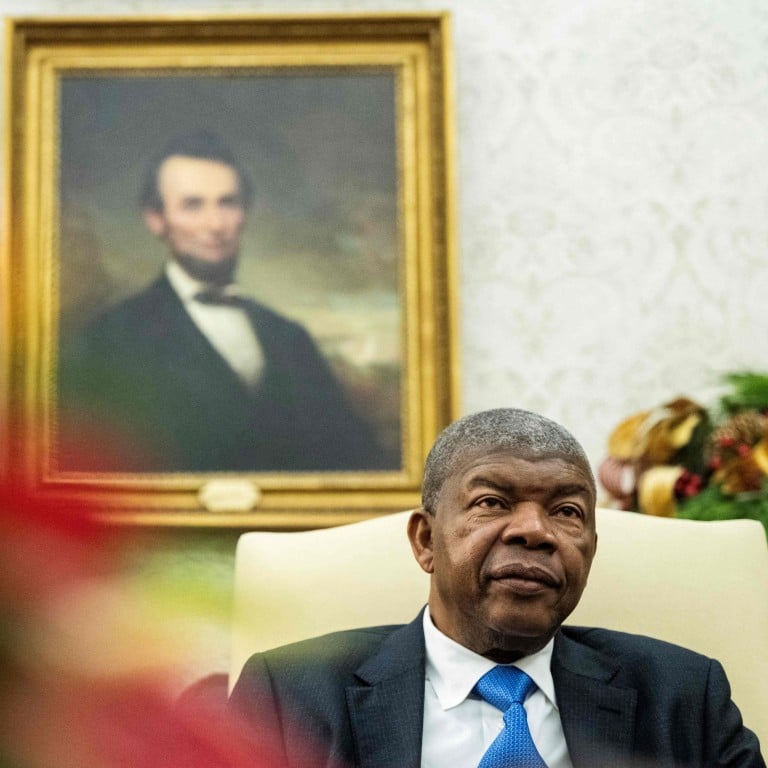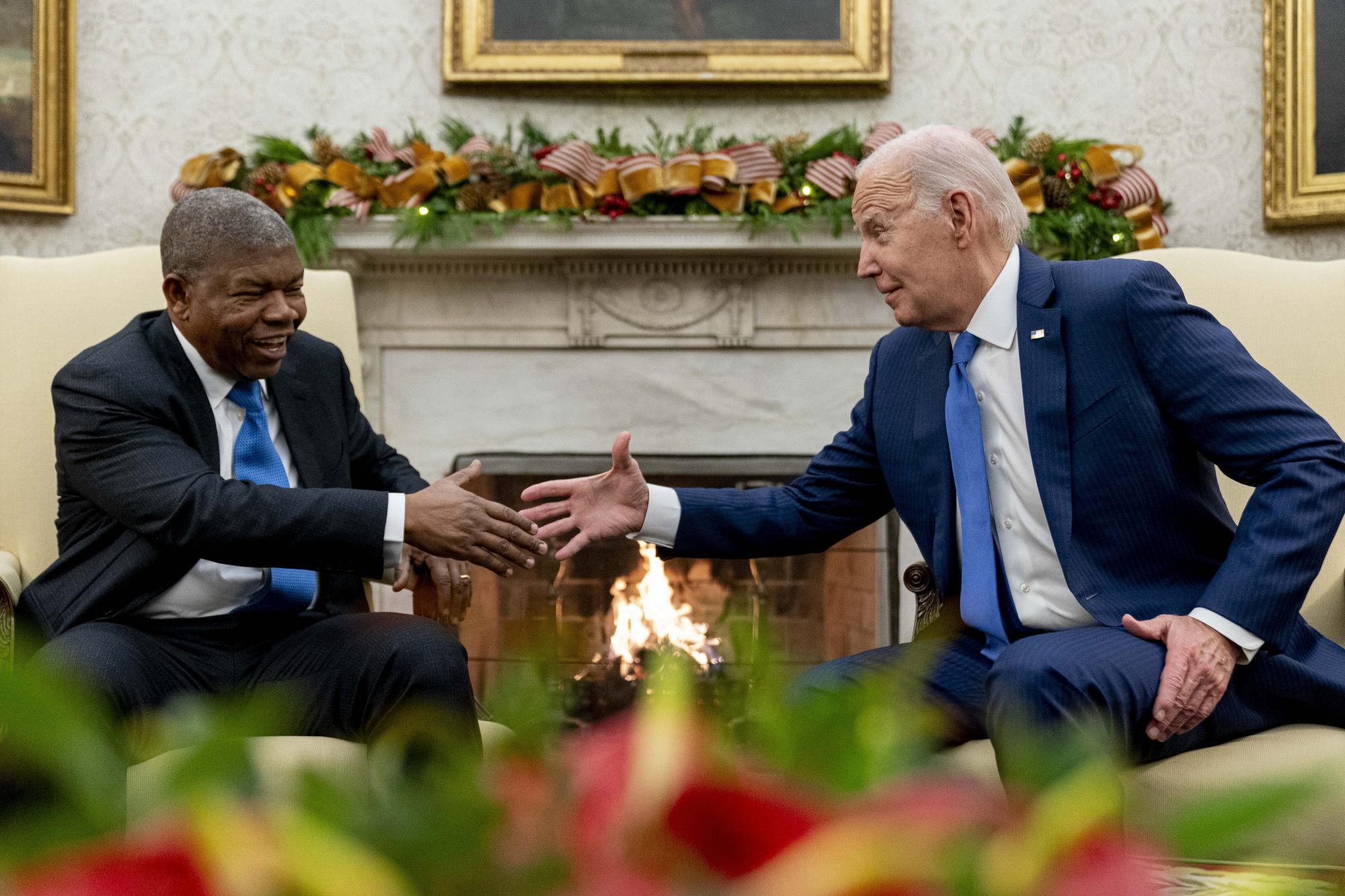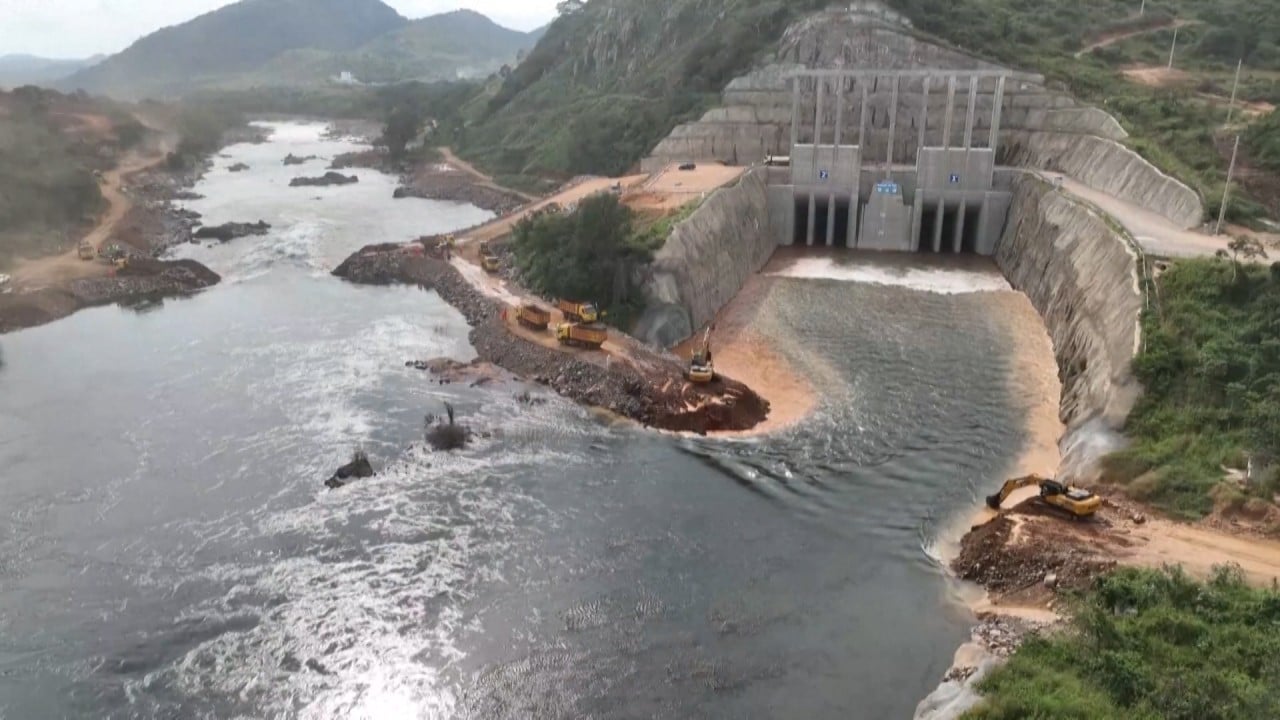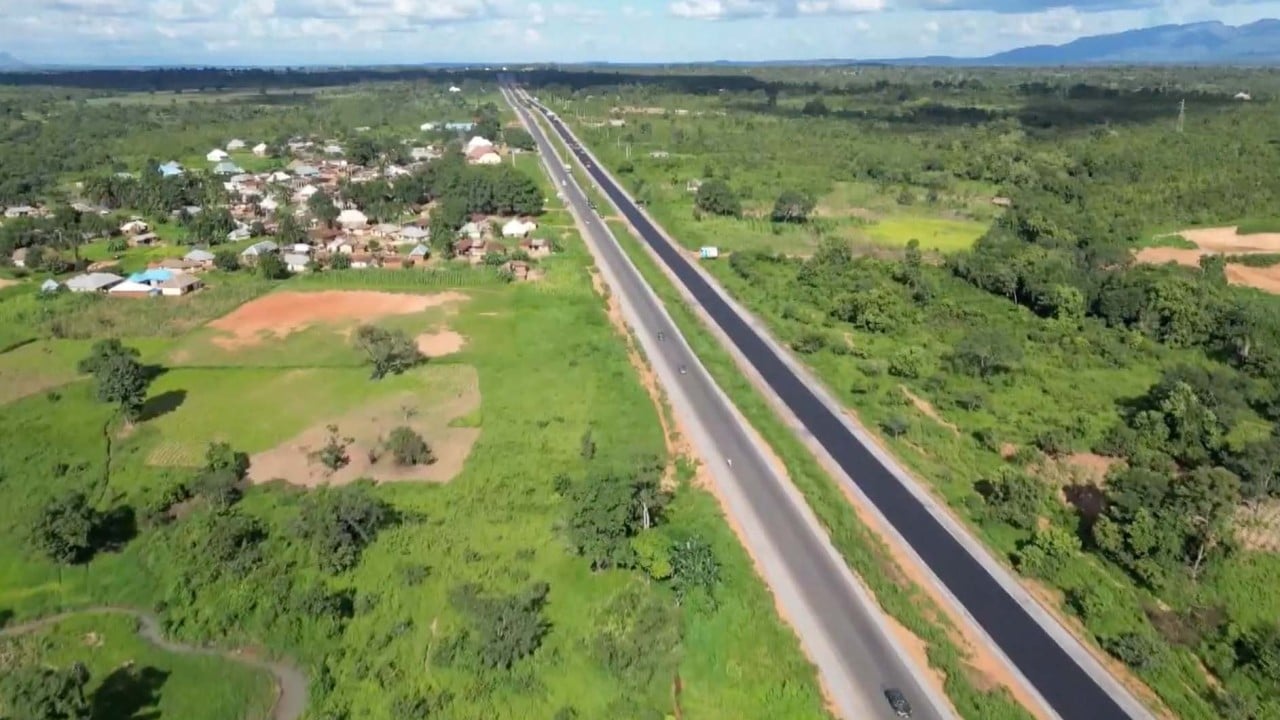
US makes US$2 billion commitment to Angola as oil-rich nation eyes move beyond Chinese funding model
- Angola was the biggest African recipient of Beijing’s funding, but a fall in oil prices has left the country struggling to service its debts
- The US is now investing in infrastructure and a rail link between Angola and its neighbours as it seeks to present itself as a better alternative to China
President Joe Biden said the US had committed more than US$1 billion this year to fund solar power, bridges and internet infrastructure. It is also offering a further US$1 billion to fund the strategically important Lobito Corridor, running from Zambia to the Angolan coast via the Democratic Republic of Congo.
The US International Development Finance Corporation had initially advanced US$250 million for a feasibility study to refurbish the 1,300km (800-mile) Lobito Atlantic Railway line, as part of the Lobito logistics corridor.
“This first-of-its kind project is the biggest US rail investment in Africa ever, one that’s going to create jobs and connect markets for generations to come,” President Biden said when he hosted Angolan President Joao Lourenco last week at the White House.
The US investment in Angola is part of the Partnership for Global Infrastructure and Investment, launched by the Group of 7 last year with the aim of providing US$600 billion by 2027 to counter China’s Belt and Road Initiative.
A ‘marital burnout’?: China-Angola ties in doubt as both seek other partners
“Simply put, a partnership between Angola and America is more important and more impactful than ever,” Biden said. He also promised to visit the country, saying: “I have been there and I will be back.”
Lourenco said that the US engagement in the Lobito Corridor would not only help Angola, “but also the whole African continent. So, this is a new page that has been turned in the US-Africa relations”.
Biden wants to use Angola as a test case for US ambitions to counter Chinese influence in Africa, where Beijing has funded many mega projects.
But China’s economic influence in Angola has been deep-rooted after it agreed to bankroll the oil-rich country’s reconstruction following a 27-year civil war that ended in 2002.
Angola eventually became Africa’s biggest destination for Chinese capital. It has since received US$45 billion from Chinese lenders – more than a quarter of China’s total lending to African countries between 2000 and 2022. The money went into the building of massive projects such as the US$4.1 billion Caculo Cabaca hydropower station.

Now, the US is making a comeback in Angola, which many decades ago was a forum for proxy wars between the US and the Soviet Union.
Gilson Lazaro, an associate professor in the sociology department at Agostinho Neto University in Angolan capital Luanda, said China’s investments over the last 20 years had undoubtedly been strategic and now the US wanted to occupy that space, helping Angola to get away from its dependence on oil.
“Angola is once again the scene of strategic disputes between two of the world’s leading powers because of its geographical importance and the resources it has, but also because of its role in the central and southern regions of the continent,” Lazaro said.
Nevertheless, China can play an important role in other areas, Lazaro said, adding: “But all this will depend on its plans and whether there will be sufficient openness on the part of Angola’s president. It is still highly relevant and represents an important part of the Angolan economy.”
Dominik Kopinski, an associate professor at the University of Wroclaw’s Institute of Economics and co-founder of the Polish Centre for African Studies, said even though Lourenco’s anti-corruption effort is sometimes framed as an internal struggle against his political opponents, “foreign diplomats we have spoken to in Luanda have acknowledged these efforts, although they are clearly far from being a game-changer”.
In this sense, Kopinski said “Angola has become less of a pariah in international circles, especially when compared to the 2000s when it was primarily seen as a symbol of oil kleptocracy, tarnishing its reputation due to mismanagement and the sheer theft of oil revenues”.
The 30th anniversary of establishing diplomatic relations with the US seemed like an opportune moment to start afresh, Kopinski added.
Furthermore, Kopinski said the US had never completely disappeared from the radar of Angolan elites.
“It has consistently been a great power to look up to, even when China was the partner of choice for pragmatic reasons. I also believe this reflects Angola’s genuine recognition of the long-term risks associated with the post-oil reality, which is slowly but steadily approaching. Hence, the growing interest in clean energy. In this context, the US investment pledges are certainly welcome,” Kopinski said.
Angola has been pursuing a charm offensive abroad, with its political elites distancing themselves from China and seeking closer ties with Western partners and countries such as Brazil, Israel or Turkey.
“This shift comes after they learned the hard way that their marriage of convenience with China has reached a burnout of sorts. Angola found itself burdened with a pile of debt and infrastructure of questionable quality,” Kopinski said.
Officially, Kopinski said China’s stance toward Angola had not changed, and their relations continued to be friendly. “However, it’s easy to see that the lending spree has come to a hard stop. It is against this new setting that Angola has been pursuing the recalibration of its foreign policy.”
Mvemba Phezo Dizolele, a senior fellow and director of the Africa Programme at the Centre for Strategic and International Studies, said: “[Lourenco] is determined to diversify the economy and expand Angola’s options and choices of partners beyond China, Russia and Cuba. The large investment in the Lobito Corridor reflects this commitment.”
Lazaro, of Agostinho Neto University in Luanda, said American administrations had been trying to influence Angola’s political and economic destinies for a long time, and now “there is a convergence of interests that only the near future will be able to clarify”.
He said the Americans saw an opportunity to turn the page and occupy the space China had left behind, which “coincided with Joao Lourenco’s desire to seek external legitimacy through US and American foreign investment”.
However, he said China was still an important partner for Angola due to its commitments to the country.



